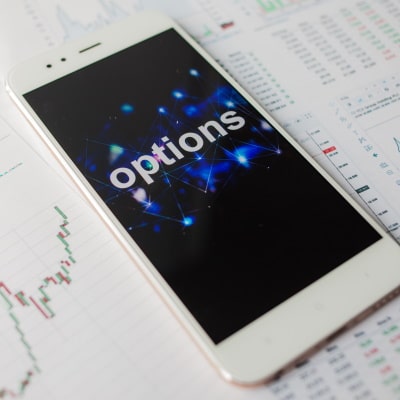Stock Trading - Using an Online Stock Broker vs a Personal Broker
Using a traditional personal stock broker or an online broker depends on your abilities to trade on your own. Discover the differences with Queensway.

Bricks & Mortar or Online – You Choose
Trading is like any other activity – the right tools get the best results. The following article will explain the variety of ways to invest in stocks, and which one can provide the most benefit – an online stockbroker or a bricks-&-mortar-based personal broker.
An investor can either trade online or buy and sell shares using the services of a personal broker. There are thousands of investors who participate in online trading, and there are millions of investors who buy and sell shares using a traditional stockbroker.
Does hiring a stockbroker make sense or should one take up online investing? Here is a simple and comparative analysis of the differences between the two.

Costs
Firstly, using a traditional personal broker entails commissions or brokerage fees for every transaction. Some stockbrokers also charge for consultation, discretionary and performance fees.
Trading with an online stock broker also commands a fee.
The majority of traditional stockbroker fees are higher than those charged by online brokers. However, there are online stockbrokers that charge more than a traditional stockbroker.
Thus, one should compare fees applied by both types of brokers and make a decision based on one’s needs and how much trading cost are affordable.
Market Knowledge
Secondly, understanding how to invest in stocks, confidence in one’s ability to predict a market trend, and the ability to perform the necessary fundamental analysis or technical analysis when managing a portfolio, makes online trading a preferred option.
On the other hand, a lack of these requires help and guidance from a stockbroker.
There are, of course, many journals, articles, guides and tutorials online and offline, which are enough to provide an introduction on how to invest in stocks and deciding when to buy or sell shares.
Therefore, education on fundamental and technical analysis and how the markets work shouldn’t be a problem. All one then requires is patience, dedication and focus.
Freedom and Flexibility
Thirdly, thanks to the internet, most things are easily achieved. Trading online might, therefore, provide a feeling of freedom compared to using a traditional broker, as one isn’t as dependent on a stockbroker to buy or sell shares.
However, more and more stockbrokers today offer the same freedom as an online investing site because the investor can buy and sell shares without notifying the stockbroker or being dependent on one.
Still, online trading offers a chance to completely control one’s investments, create a portfolio as desired, and benefit from an immediate trade execution during and even after trading hours.
Traditional brokerage firms usually follow typical market hours, which means that one might not be able to trade whenever required in international markets.

Brokerage Accounts vs Online Trading Accounts
Traditional brokerage accounts were once essential for those wanting to invest in the markets before the internet revolution. With technical advancements coming in the last decades, people have changed the way they invest.
Nowadays, the internet is available almost everywhere, which makes trading much easier and faster. And since time is the essence, it’s especially precious in an industry as competitive as trading.
For many, online trading is a convenient, efficient and fast way to handle investing that doesn’t require human contact. Nevertheless, all online platforms have a dedicated support team that can also help better understand the products offered and how to use the trading platform.
As choosing a broker is essential to one’s trading success, here are a few things to consider when selecting the type of brokerage account to fit one’s needs:
- What is your trading experience?
- What do you know about trading and the way markets work and interact with each other?
- How much help do you need to invest in the stock market?
- What are your trading goals?
- What is your initial trading capital?
- How available are you to trade?
- What are the costs? How about trading fees, roll-over and overnight fees, inactivity fees, and so forth?
- What are the services, options and features offered? How about the assets available, account currencies accepted, payment and withdrawal methods, trading platforms, support team languages, access to education and research, working hours, demo account and convenience?
- What are the protections offered to their clients? Check their years of existence, licenses and authorisation, regulatory statutes, fund protection scheme and negative balance protection.

As an investor, when it comes to deciding whether to use an online or traditional broker, there is no perfect choice. It mostly comes down to your personality and how confident you feel about trading stocks.
Take all the time you need to determine your personal preferences and trading needs. Only then can you compare and weigh the costs, benefits, services and offers of each broker and decide which one proposes the best ‘package’ for you and your investment needs.





